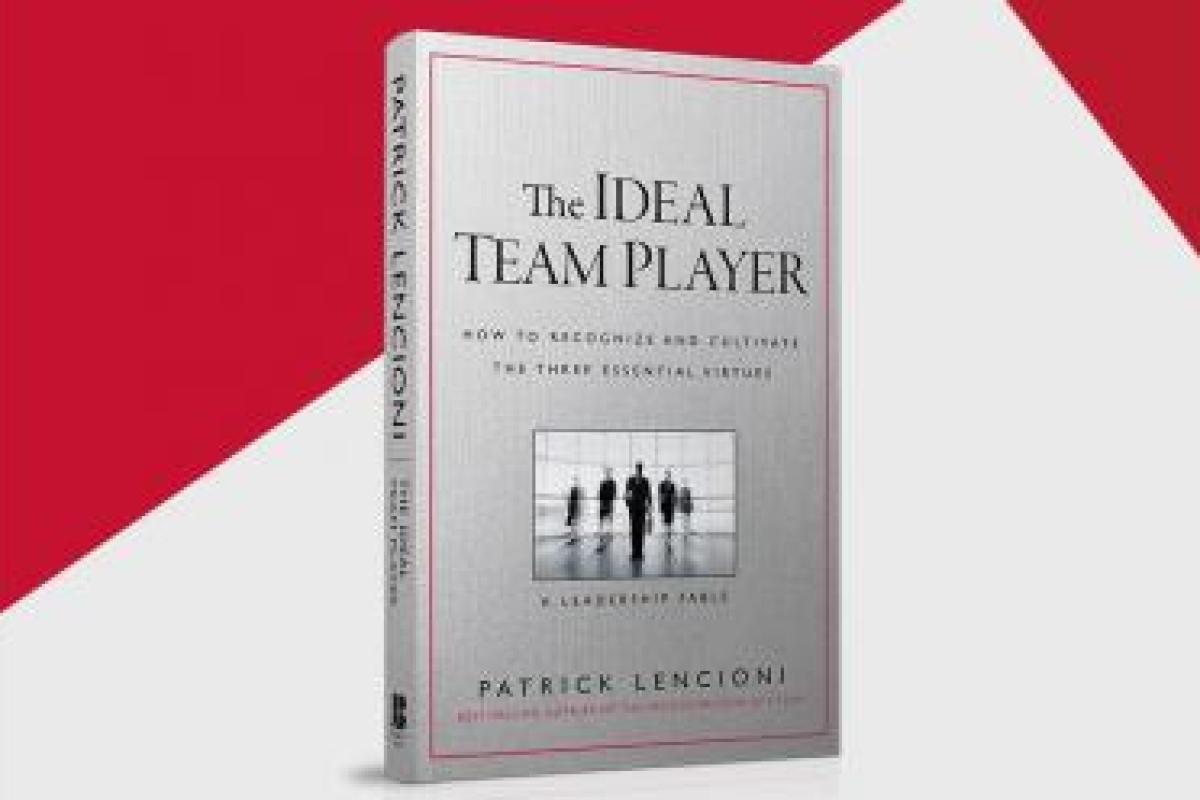Patrick Lencioni is a successful California-based consultant, who has sold no fewer than five million copies of his ten books. His new title The Ideal Team Player is highly topical given the split in the Government over Brexit, and leadership strife in both main parties. It’s a book Lencioni fans were waiting for, given the success of his best-seller The Five Dysfunctions of a Team (2002). And as a big enthusiast for a teamwork approach to meetings, I was keen to see what qualities he valued in a team player, having read his Death by Meeting (2004).
The answer is quite simply: Humble, Hungry and Smart (in the sense of emotionally intelligent – smart about people). And Lencioni insists that the team member must be a paragon on all three criteria. If you’re humble and hungry, but not smart, you are an ‘Accidental Mess-Maker’. Humble and smart, but not hungry, and you’re a ‘Lovable Slacker’. Hungry and smart, but not humble, and you’re a ‘Skilful Politician’. In contrast to many authors, Lencioni keeps it simple, and uses an engaging narrative to point up the dangers of having politicians in your top team. The adventures of Bob, Jeff, Bobby and Clare in the saga of Valley Builders are highly readable.
You get to know the cast of characters, and can easily understand why Ted (the apparently ideal new recruit to the management team) would have been a disaster.
In terms of managing expectations about how best to use the book, ‘team player’ to the author effectively means managing partner in a small or medium sized entrepreneurial, almost certainly privately owned, set up. It is arguable that project teams in bigger organisations, and all teams with a short term goal-directed mission require balanced personalities and skills, rather than the Humble, Hungry and Smart formula. Meredith Belbin’s Management Teams: Why they succeed or fail (1981) recommended categorising team players into seven (later nine) typologies or roles to make sure the team has the benefit of difference and complementary abilities. Sports teams, theatrical troupes, and dare I mention it right now, governments, have the same need.
Leaders who use personality profiling to inform team building might happily accept ‘Hungry’ and ‘Smart’ as universal virtues in their senior people, but ‘Humble’ might be something of a limiter, when there are challenges to be faced and big opportunities to be realised! In the environment of a dynamic and strategic meeting also, you need Leaders, not Chairs. Humility can be attractive, but not necessarily inspiring and motivating with a Big Hairy Audacious Goal in sight.
But Lencioni was clearly writing with management teams in mind, where collaborative and empathetic behaviour is as important as raw talent and drive, and even medium term objectives (let alone those in the long term) will never be reached without patience and people skills.
